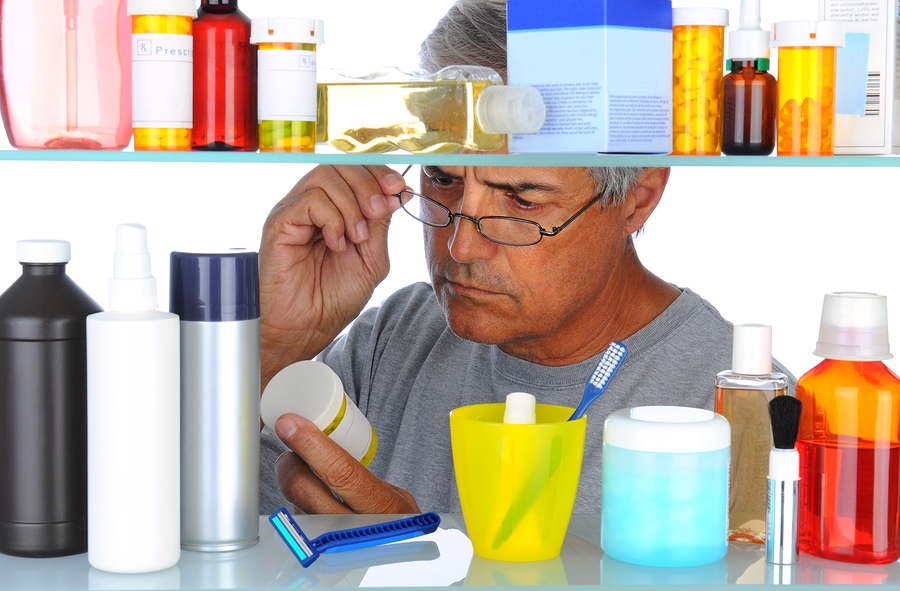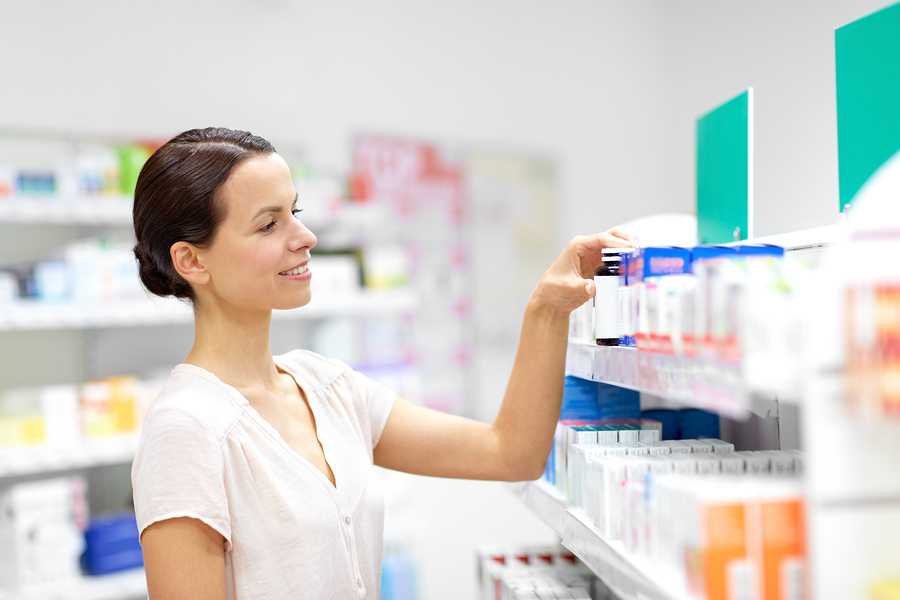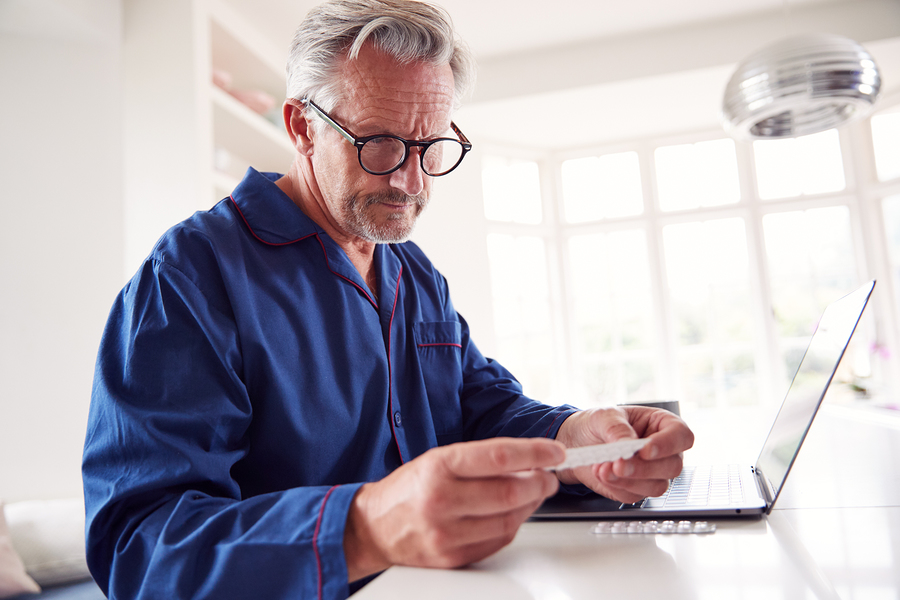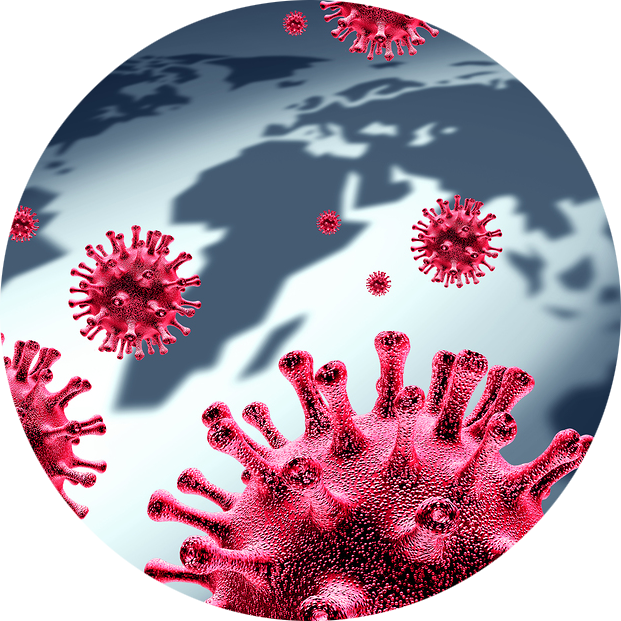During the ongoing emergency, it is vitally important that you take care of your health and take steps to ensure you have an adequate supply of your medications. We have brought together some tips and advice on how to manage your prescriptions and medication needs during this difficult time. Remember: Keep taking your medicine as prescribed and plan ahead so you don't run out of meds.
The information below is accurate as of 31st March, but please be aware that new information is becoming available on a daily basis, and official advice is updated regularly. We will aim to keep our articles up-to-date with the changing situation.
How much medication should I store?
 The Centers for Disease Control and Prevention (CDC) recommend that you have at least a 7-10 day supply of medications stored in the event of an emergency, such as a pandemic. To ease pressure on pharmacies and patients, most states have now issued executive orders enabling pharmacists to dispense emergency refills (usually up to a 30-day supply) of any non-controlled medications.
The Centers for Disease Control and Prevention (CDC) recommend that you have at least a 7-10 day supply of medications stored in the event of an emergency, such as a pandemic. To ease pressure on pharmacies and patients, most states have now issued executive orders enabling pharmacists to dispense emergency refills (usually up to a 30-day supply) of any non-controlled medications.
Guidance from experts varies, but some have advised Americans to try and get a larger supply of meds, particularly for potentially life-saving medication, such as heart or diabetes drugs. Among these is assistant secretary for health at the U.S. Department of Health and Human Services Brett P. Giroir, who said at an American Association of Retired Persons (AARP) Q&A last week: "Make sure you have, if you can, a good month or more of medications - a couple of months - to keep you out of the doctor's office.”
This is in line with recommendations made at a media briefing earlier this month by Dr Nancy Messonnier, director of the National Center for Immunization and Respiratory Diseases at the CDC, who urged high-risk people and their families to "take action".
"Make sure you have supplies on hand like routine medications for blood pressure and diabetes, and over-the-counter medicines and medical supplies to treat fever and other symptoms," she advised.
Note: Having a sufficient store of medications is essential, but avoid panic-buying medication. Assess your medication needs carefully, try not to hoard expensive medications unnecessarily, and check the expiry date on your medicine.
How do I get more medication?
 In response to the COVID-19 pandemic, many health plans and benefit managers have waived the usual restrictions limiting people to a 30-day supply, with some actively encouraging people to get a 90-day supply of their meds instead.
In response to the COVID-19 pandemic, many health plans and benefit managers have waived the usual restrictions limiting people to a 30-day supply, with some actively encouraging people to get a 90-day supply of their meds instead.
On March 10th, 2020, the Centers for Medicare and Medicaid Services (CMS) reminded Medicare Advantage and Part D plans that the law enables them to:
- remove prior authorization requirements
- waive prescription refill limits
- relax the restrictions on home delivery of prescription medication.
To arrange a larger supply of medication, first call your primary care physician and request an increase to your usual supply. They may be able to give you a prescription for a 90-day supply rather than the usual 30-days.
Remember, call your pharmacist to ensure they have sufficient stock to fill your prescription before you make a trip to the pharmacy.
If you have insurance and need a larger supply of your medication, you can apply for a quantity limit exception from your health plan. If you cannot arrange this in sufficient time, you may wish to consider using an RxSpark voucher to get your medication sooner.
Click here to view an up-to-date list of insurers' prescription waivers from American Health Insurance Plans
How do I safely collect my medication from the pharmacy?
 Minimize time spent at the pharmacy
Minimize time spent at the pharmacy
- Get a larger supply of your meds - Ask your pharmacist if they can fill a larger prescription so you can avoid future trips to the pharmacy.
- Be organised - plan ahead and collect all your medication at the same time. Many pharmacies offer medication synchronization (med sync) programs, allowing you to collect them all on the same day each month.
- Wait in the car if your prescription is not ready to collect
- Use the pharmacy drive-thru window if possible
- Maintain at least 6 feet (2 meters) distance between yourself and others
- Go on your own - Unless you really need someone to help you at the pharmacy, make sure you go alone and don't take the kids.
- If you feel unwell, don't go out! (See below for information on how to get your medication without leaving the house).
If possible, take steps to avoid trips to the pharmacy altogether and try to call ahead to ensure they have your medication in stock...
Follow the personal hygiene guidance
- Wash your hands - use soap and water and wash for at least 20 seconds, particularly if you have been out in public or after blowing your nose, coughing or sneezing. Use hand sanitizer when you can't use soap and water.
- Cough into your elbow and if you sneeze, use a tissue and make sure you dispose of it in the trash. Wash your hands after coughing or sneezing.
- Avoid touching your face, particularly if you haven't washed your hands or have been out in public.
If you use an RxSpark voucher, try not to hand your phone to the pharmacist
If you are using one of our vouchers at the pharmacy, please don't hand your phone to the pharmacist. Reducing contact with other people is vital in stopping the spread of the virus and passing your phone to someone else may expose you or them to the coronavirus. Instead, you can:
- Call ahead and provide the pharmacy with your voucher details. To process your discount, they will need the:
- Member ID
- Group
- BIN
- PCN
- Print out your voucher and give it to the pharmacist
- Or, if you don't have a printer, you can simply write out the details of your voucher. As well as the details above, you will also need to provide the drug name (check the spelling!!), the dosage, and the quantity.
If you have any questions about your RxSpark voucher, you can contact us on 866-797-7275 or by email at support@rxspark.com.
How do I get medication if I'm self-isolating or cannot visit the pharmacy?

If you have symptoms or are considered at high risk from the coronavirus, you should be self-isolating and should not leave the house. If you fall into these categories, don't panic, there are still ways to get your medication...
Use pharmacy delivery services
Many pharmacies offer a home delivery service. Use it! To help customers during the pandemic, many major retailers are waiving fees for delivery of prescriptions. These include (but are not limited to):
- Walgreens
- CVS Pharmacy
- Albertsons/Safeway
- Rite Aid
Speak to your local pharmacist for more details and don't forget to check your local independent pharmacies. Many of these smaller pharmacies will also deliver your medication to your home.
Use a mail order pharmacy
You may be able to use a mail order pharmacy to get your medication. If you have insurance, it may be worth considering contacting your pharmacy benefit manager (PBM) to find out if you can sign up for this service.
Ask for help!
If you have symptoms or are at high-risk from the virus, you should not go out. Ask friends or family to collect your medication from the pharmacy if there is no home delivery option available.
You may need to fill in forms to nominate someone else to collect your meds for you, so explore these options early to ensure you are prepared if you develop symptoms or need to remain in your home.
A word on over-the-counter meds...
 In addition to stocking up on your essential prescription medication, consider stocking up on a few basic over-the-counter essentials for your medicine cabinet. You should have a basic first aid kit in the house so you can treat minor ailments and injuries and avoid an unnecessary trip to the doctor or hospital.
In addition to stocking up on your essential prescription medication, consider stocking up on a few basic over-the-counter essentials for your medicine cabinet. You should have a basic first aid kit in the house so you can treat minor ailments and injuries and avoid an unnecessary trip to the doctor or hospital.
There are also some medications you may wish to have in the house in case you or someone in your family starts displaying COVID-19 symptoms.
Currently, there is no cure or US Food and Drug Administration (FDA) approved treatment for COVID-19, but there are a number of over-the-counter medications that may help you relieve some of the symptoms.
Which OTC drugs can help with COVID-19 symptoms?
- Tylenol (acetaminophen) may help alleviate the fever and body aches that often accompany COVID-19
- Cough syrup, for example Robitussin (dextromethorphan) or Delsym (dextromethorphan), can help suppress a cough
- Cold and flu remedies may relieve some of the flu-like symptoms
- Sudafed (pseudoephedrine) and other decongestants may help with nasal congestion
We will continue to provide you with updates and information during the ongoing coronavirus pandemic. Stay safe and stay healthy.

COVID-19 (Coronavirus) - Key information and guidance